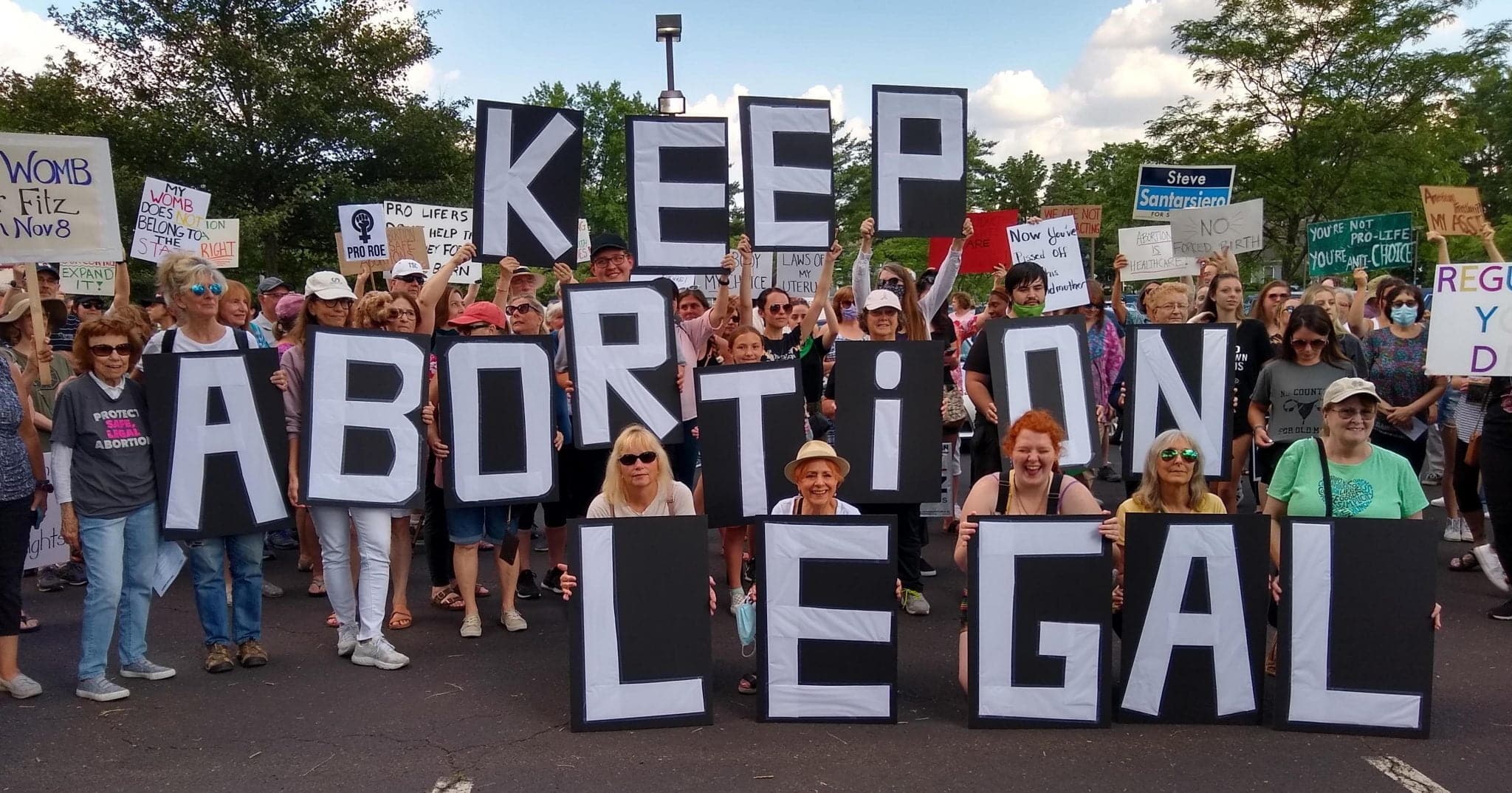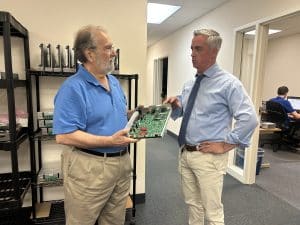Ever since the fall of Roe v. Wade, abortion clinics in Pennsylvania have seen an influx of out-of-state patients seeking access to abortions. According to data obtained by the Bucks County Beacon, Planned Parenthood Keystone has had more than 4,300 abortion-related visits from out-of-state patients since July, the majority of which have occurred through their clinics’ virtual health centers. Most virtual and in-person visits consist of informed consent lectures, in which patients receive state-mandated counseling designed to discourage them from having an abortion. After this visit, patients are then required to wait 24 hours before they can legally obtain access to a medical or surgical abortion in the state.
The number of pregnant people traveling to Pennsylvania to actually obtain abortions, however, is much lower. In fact, abortion providers at Planned Parenthood Keystone’s clinics have only performed around 195 abortions in the same time period for those residing in nearby states with little-to-no abortion access, like West Virginia. While there are a multitude of reasons for this drop off, one of the main reasons seems to be time, or lack thereof.
“The drop off is partly because it’s a time sensitive procedure and there are neighboring states – like New Jersey, and New York, and Maryland – where those kinds of barriers are not in place,” Melissa Reed, the CEO and president of Planned Parenthood Keystone, told Bucks County Beacon. “Although Pennsylvania still has access to abortion, we do have restrictions that are onerous for some people.”
While abortion is legal in Pennsylvania up until 24 weeks of gestation, with some later exceptions for the life of the pregnant person, there are other obstacles that can pose a real challenge to obtaining abortion care in the state. Some of those restrictions include the informed consent lectures and the 24-hour waiting period pregnant patients are legally required to endure in order obtain an abortion in the state, both of which are mandated under Pennsylvania’s Abortion Control Act. The law also dictates that people under the age of 18 must receive parental consent before they can have an abortion in Pennsylvania. In addition, patients traveling from out of state have to coordinate travel, take time off from work, arrange child care, potentially get a hotel room, and save up money for the procedure, which can all prevent them from seeking access to care more quickly. Even people who live in Pennsylvania face similar struggles, especially those living in more rural areas where abortion clinics are often few and far between.
When it comes to the potential strain this influx of out-of-state patients may have on abortion clinics’ staff and resources, however, Reed says Planned Parenthood Keystone is more than ready to meet the challenge.
“Sadly, we’ve been planning for the overturn of Roe for several years now,” she said, adding that the organization “has really worked hard to expand access and preparation” in anticipation of the Dobbs decision and in the wake of the fallout of Roe. “We’ve hired more providers, we’ve increased appointment availability, we’ve added abortion at new centers. We have made medication abortion available through the mail in Pennsylvania,” Reed continued. “So we have really done everything we possibly can to meet the demand and we are able to do that right now.”
And as Planned Parenthood’s affiliate in Pittsburgh and western Pennsylvania struggles to keep up with the surge in patients from neighboring states, Reed and her colleagues are working hard to help out and ensure that every patient receives the care and assistance they need.
“One of the ways that we’re doing that, collectively, is we have abortion navigators on staff to work with patients to help them find the closest appointment that meets their needs, to help draw down money from our fund for choice to cover the costs of travel or childcare or the procedure or lost wages,” she said.
Due to the current legal battle over abortion rights in states like Ohio, however, Reed expects this influx of out-of-state patients to only increase in the near future. While the Ohio state legislature passed a near-total ban on abortion following the overturning of Roe v. Wade, a lower court indefinitely blocked the ban while litigation against the law proceeds.
“Currently, abortion is still available in Ohio. Sadly, we don’t think that will continue throughout 2023,” she said. “So we do expect to see more people coming from Ohio. We also know that other states in the nation are poised during the upcoming legislative sessions to ban abortions in their state.”
So far, 13 states have enacted complete or near-total bans on abortion, while a total of 26 states are expected to end up banning abortion overall. According to Reed, this would mean that the majority of people in need of an abortion will be unable to obtain one in their home state and will be forced to travel elsewhere in order to seek access to abortion care.
“The data shows, that we’ve been looking at, that about 8,500 additional patients from out-of-state will be coming to Pennsylvania, and so that’s what we are anticipating,” she said. “But I mean, frankly, we shouldn’t have to worry about that. People should not have to be banned from seeking access to vital health care in their own states.”
Despite this, Reed says that Planned Parenthood Keystone’s “doors are wide open for whoever needs abortion and we have availability and are ready to meet them.”







